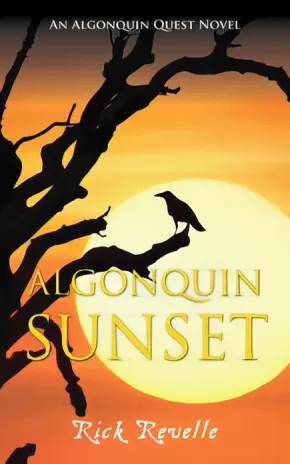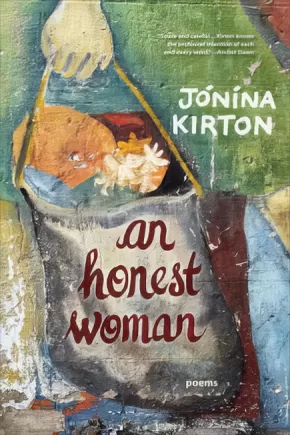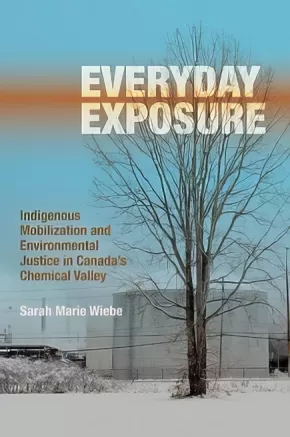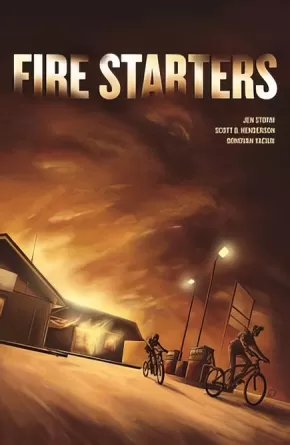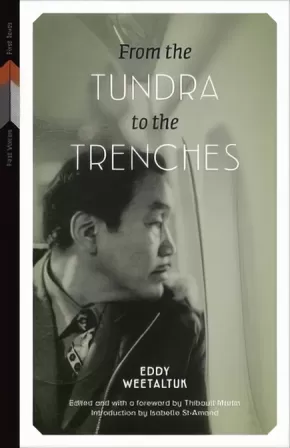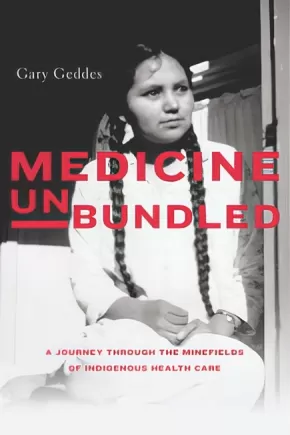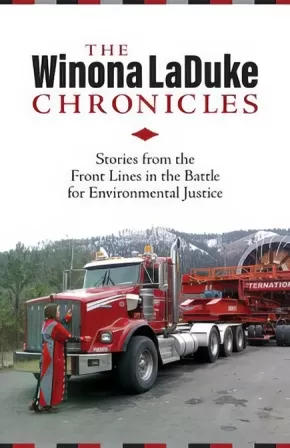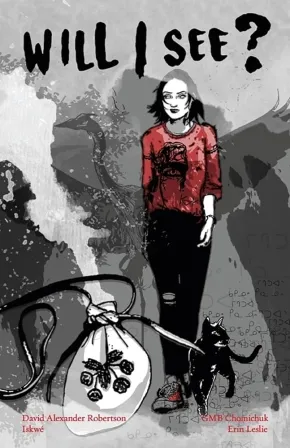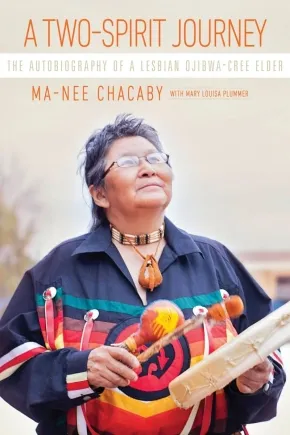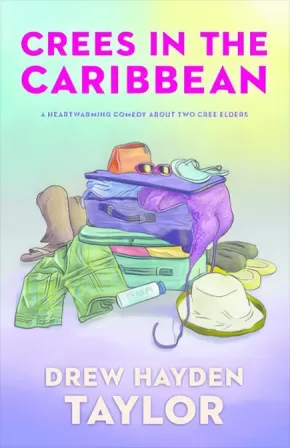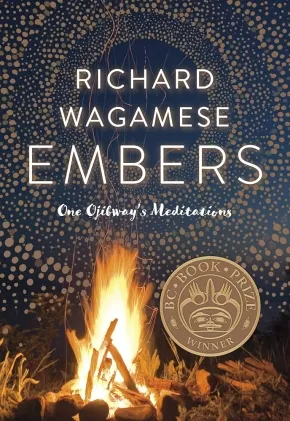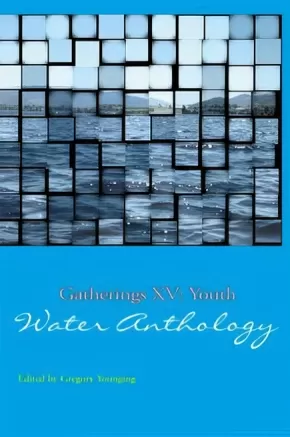Canadian Indigenous Books for Schools 8 - 12 2017-2018
Synopsis:
Anokì and his sister Pangì Mahingan have grown up, and now face a decision that will change their lives forever.
Twelve years after Mahingan was wounded battling for his life against the Haudenosaunee warrior known as Ö:nenhste Erhar (Corn Dog), we rejoin his family and learn what fate held for him.
Now, his children, Anokì and Pangì Mahingan, along with their twin cousins Makwa and Wàbek, are grown and have adult responsibilities. Still living with their Algonquin family, they have become a formidable fighting unit with the addition of three Mi´kmaq warriors, E´s, Jilte´g, and the fierce Elue´wiet Ga´qaquj.
However, there is danger in the land of the setting sun, and nothing is more dangerous than what the family is going to encounter from the fierce enemy of their new Anishinaabe allies: the Lakȟóta.
Educator Information
Recommended Ages: 12-15.
Series Information
This novel is part of the Algonquin Quest Series, a series of young adult novels from Algonquin author Rick Revelle.
Additional Information
304 pages | 5.00" x 8.00"
Synopsis:
An Honest Woman by Jonina Kirton confronts us with beauty and ugliness in the wholesome riot that is sex, love, and marriage. From the perspective of a mixed-race woman, Kirton engages with Simone de Beauvoir and Donald Trump to unravel the norms of femininity and sexuality that continue to adhere today.
Kirton recalls her own upbringing, during which she was told to find a good husband who would “make an honest woman” out of her. Exploring the lives of many women, including her mother, her contemporaries, and well-known sex-crime stories such as the case of Elisabeth Fritzl, Kirton mines the personal to loosen the grip of patriarchal and colonial impositions.
An Honest Woman explores the many ways the female body is shaped by questions that have been too political to ask: What happens when a woman decides to take her sexuality into her own hands, dismissing cultural norms and the expectations of her parents? How is a young woman’s sexuality influenced when she is perceived as an “exotic” other? Can a woman reconnect with her Indigenous community by choosing Indigenous lovers?
Daring and tender in their honesty and wisdom, these poems challenge the perception of women’s bodies as glamorous and marketable commodities and imagine an embodied female experience that accommodates the role of creativity and a nurturing relationship with the land.
Reviews
“Jonina Kirton is courageously honest about her life experiences as a female of Indigenous and immigrant ancestry. Many poems resonate deeply, as we identify with her personal quest to figure out who she is, and the unacceptable things done to her. Her raw honesty is unsettling and uncomfortable, because it can be our truth too. Her poems depict devaluation and dehumanization, grieving, lessons learned. Her poems offer important insights as to why there are thousands of missing and murdered Indigenous women.” — Senator Lillian E. Dyck
“When writing from the voice of between, writer and reader have no place to hide. Assumptions and camouflage fall away. Murdered, missing, and violated women and girl voices have been silenced. The story lethally repeats. Kirton picks over how she was raised familially and culturally like a crime scene. Too, she affirms, ‘I have been here forever and I will rise again and again.’ Tough, eloquent, revelatory, these poems are the very ones we are desperately in need of.” — Betsy Warland, author of Oscar of Between: A Memoir of Identity and Ideas
“I’m sure people have been looking at me strangely every time I gasp, but I can’t glance away from the page for even a second to notice. Some of the poems end sharply, with a punch; some deliberately leave me searching for the next line; others show the repetition of heartbreaking cycles of violence and oppression, but offer a portrayal of resilience, too.” — All Lit Up!
Educator Information
This book would be useful for Women's Studies, Creative Writing, English Language Arts, Poetry, and English courses. Recommended for grades 11-12 and university-college students.
Please be advised, this book contains explicit sexual references and references to sexual and physical abuse.
Additional Information
104 pages | 6.00" x 9.00"
Synopsis:
Surrounded by Canada’s densest concentration of chemical manufacturing plants, members of the Aamjiwnaang First Nation express concern about a declining male birth rate and high incidences of miscarriage, asthma, cancer, and cardiovascular illness. Everyday Exposure uncovers the systemic injustices they face as they fight for environmental justice. Exploring the problems that conflicting levels of jurisdiction pose for the creation of effective policy, analyzing clashes between Indigenous and scientific knowledge, and documenting the experiences of Aamjiwnaang residents as they navigate their toxic environment, this book argues that social and political change requires a transformative “sensing policy” approach, one that takes the voices of Indigenous citizens seriously.
Educator Information
This book would be useful for courses in Environmental Studies, Science, Social Justice, and Social Studies.
Additional Information
280 pages | 6.00" x 9.00"
Synopsis:
Looking for a little mischief after finding an old flare gun, Ron and Ben suddenly find themselves in trouble when the local gas bar on Agamiing Reserve goes up in flames, and they are wrongly accused of arson by the sheriff’s son. As the investigation goes forward, community attitudes are revealed, and the truth slowly comes to light.
Reviews
"Storm's story is a very thoughtful look at the two systems of justice. The Native boys in the White system, being interrogated is a stark contrast to what the White boy experiences in the Native system of justice. It points to the path Storm is looking for: how a community can heal, rather than how it could punish and inflict more harm on people... I recommend Jen Storm's Fire Starters. There's a lot to study, think about, and of course, talk about." -- Debbie Reese, American Indians in Children's Literature
"Fire Starters reminds readers of the many perspectives involved in reconciliation. The story moves beyond Ron and Ben’s experiences as aboriginal teens poorly treated by a white community to include the experiences of law enforcement officers, family members, and even the arsonists themselves. Complementing the fast-paced plot, Henderson’s artwork is drawn from a wide variety of perspectives, and Yaciuk’s moody colours suit the rising tension experienced by all characters. A cautionary tale about the consequences of prejudice and racism, Fire Starters is a valuable addition to conversations about the importance of reconciliation and the power of the truth." -- Roseanne Gauthier, National Reading Campaign
Educator & Series Information
Recommended Grades: 6-9
Fire Starters is one book in The Debwe Series. This series features exceptional Indigenous writing from across Canada.
Synopsis:
“My name is Weetaltuk; Eddy Weetaltuk. My Eskimo tag name is E9-422.” So begins From the "Tundra to the Trenches." Weetaltuk means “innocent eyes” in Inuktitut, but to the Canadian government, he was known as E9-422: E for Eskimo, 9 for his community, 422 to identify Eddy.
In 1951, Eddy decided to leave James Bay. Because Inuit weren’t allowed to leave the North, he changed his name and used this new identity to enlist in the Canadian Forces: Edward Weetaltuk, E9-422, became Eddy Vital, SC-17515, and headed off to fight in the Korean War. In 1967, after fifteen years in the Canadian Forces, Eddy returned home. He worked with Inuit youth struggling with drug and alcohol addiction, and, in 1974, started writing his life’s story. This compelling memoir traces an Inuk’s experiences of world travel and military service. Looking back on his life, Weetaltuk wanted to show young Inuit that they can do and be what they choose.
Reviews
“Endlessly interesting; an account of a traditional way of life now lost, a gripping first-hand account of a front-line soldier during the war, and an honest account of a young man’s adventures and misadventures. It is to all our benefit that it has, at last, found its way into print." — Michael Melgaard, The National Post
“Tender, honest, and often raw, Weetaltuk’s storytelling is masterful, engrossing, and deeply human. He has imbued his writing with a philosophical nuance that is characteristically Inuit: very subtle, yet profound." — Siku Allooloo, The Malahat Review
“Recounts the adventures of Inuk veteran Eddy Weetaltuk, from his early life in the North to his escape to the south under an assumed identity, to his enlistment in the Canadian Forces, which took him across the Canadian West, to Japan and Germany, and into battle in Korea. Adopting the name Eddy Vital was necessary in 1951 because the federal government restricted the movement of Inuit people. Through his alias, Weetaltuk was able to see the world; in the army, he experienced equality and respect – all the while never forgetting his true identity as an Inuk. The publication history of From the Tundra to the Trenches is itself a four-decades-long saga of many twists and turns. That it now finds English publication (after first appearing in French and German) owes to the author’s conviction that his life story be read as a work of literature with the makings of a bestseller. Eddy Weetaltuk was right.”— Jade Colbert, The Globe and Mail
“For those interested in Inuit culture it offers the rare and valuable perspective of an Inuk looking out from his culture at the world rather than the world looking in. “ — P. T. Sherrill, CHOICE
Educator & Series Information
From the Tundra to the Trenches is the fourth book in the First Voices, First Texts series, which publishes lost or underappreciated texts by Indigenous writers. This new English edition of Eddy Weetaltuk’s memoir includes a foreword and appendix by Thibault Martin and an introduction by Isabelle St-Amand.
Additional Information
280 pages | 5.50" x 8.50" | 25 colour illustrations, 3 b&w photographs, bibliography
Synopsis:
A shocking exposé of the dark history and legacy of segregated Indigenous health care in Canada.
After the publication of his critically acclaimed 2011 book Drink the Bitter Root: A Writer’s Search for Justice and Healing in Africa, author Gary Geddes turned the investigative lens on his own country, embarking on a long and difficult journey across Canada to interview Indigenous elders willing to share their experiences of segregated health care, including their treatment in the "Indian hospitals" that existed from coast to coast for over half a century.
The memories recounted by these survivors—from gratuitous drug and surgical experiments to electroshock treatments intended to destroy the memory of sexual abuse—are truly harrowing, and will surely shatter any lingering illusions about the virtues or good intentions of our colonial past. Yet, this is more than just the painful history of a once-so-called vanishing people (a people who have resisted vanishing despite the best efforts of those in charge); it is a testament to survival, perseverance, and the power of memory to keep history alive and promote the idea of a more open and just future.
Released to coincide with the Year of Reconciliation (2017), Medicine Unbundled is an important and timely contribution to our national narrative.
Synopsis:
Read, Listen, Tell brings together an extraordinary range of Indigenous stories from across Turtle Island (North America). From short fiction to as-told-to narratives, from illustrated stories to personal essays, these stories celebrate the strength of heritage and the liveliness of innovation. Ranging in tone from humorous to defiant to triumphant, the stories explore core concepts in Indigenous literary expression, such as the relations between land, language, and community, the variety of narrative forms, and the continuities between oral and written forms of expression. Rich in insight and bold in execution, the stories proclaim the diversity, vitality, and depth of Indigenous writing.
Building on two decades of scholarly work to centre Indigenous knowledges and perspectives, the book transforms literary method while respecting and honouring Indigenous histories and peoples of these lands. It includes stories by acclaimed writers like Thomas King, Sherman Alexie, Paula Gunn Allen, and Eden Robinson, a new generation of emergent writers, and writers and storytellers who have often been excluded from the canon, such as French- and Spanish-language Indigenous authors, Indigenous authors from Mexico, Chicana/o authors, Indigenous-language authors, works in translation, and "lost" or underappreciated texts.
In a place and time when Indigenous people often have to contend with representations that marginalize or devalue their intellectual and cultural heritage, this collection is a testament to Indigenous resilience and creativity. It shows that the ways in which we read, listen, and tell play key roles in how we establish relationships with one another, and how we might share knowledges across cultures, languages, and social spaces.
Reviews
Edited by experts in Indigenous literature and contextualised beautifully, historical writers like E. Pauline Johnson are placed alongside exciting genres like Indigenous Science Fiction — illustrating the vibrancy and innovation of Indigenous storytelling across time, space and politics. If you want a primer on Indigenous cultural expressions, this is for you. If you want deft, detailed stories in Indigenous written, oral and graphic traditions, these will expand your thinking. Read, Listen, Tell will make you laugh, dream and search for more. — Niigaanwewidam Sinclair
A unique compendium that is the direct result of outstanding and painstaking scholarship, Read, Listen, Tell: Indigenous Stories from Turtle Island is an impressively informative, deftly organized, and exceptionally well presented volume that is unreservedly recommended for both community and academic library Indigenous Cultural Studies collections and supplemental reading lists. — Midwest Book Review
Read, Listen, Tell collects a brilliant and vast array of indigenous short fiction, bolstered by insightful critical essays that prioritize indigenous voices, culture, and methodologies. — Clarissa Goldsmith, Foreword Reviews, July 2017
Educator Information
• Connects Indigenous writing across colonial settler borders (of Canada, USA, and Mexico) at a time when those borders are hardening in light of security measures.
• Truth and Reconciliation Commission report highlights focus on education, prioritizing Indigenous knowledges, pedagogies, and perspectives—this book provides that.
• Provides curriculum material for new Indigenous content mandates in some provinces (Ontario, BC).
• Includes French-, Spanish-, and Indigenous-language.
• Indigenous authors (in translation).
Additional Information
410 pages | 6.00" x 9.00"
Edited by Sophie McCall, Deanna Reder, David Gaertner, and Gabrielle L'Hirondelle Hill
Synopsis:
Canada's relationship with its Indigenous people has suffered as a result of both the residential school system and the lack of understanding of the historical and current impact of those schools. Healing and repairing that relationship requires education, awareness and increased understanding of the legacy and the impacts still being felt by Survivors and their families. Guided by acclaimed Indigenous author Monique Gray Smith, readers will learn about the lives of Survivors and listen to allies who are putting the findings of the Truth and Reconciliation Commission into action.
Educator Information
Recommended for grades 4 to 8.
A teacher guide for this resource is also available: Speaking Our Truth Teacher Guide
Additional Information
160 pages | 7.50" x 9.00"
Synopsis:
Chronicles is a major work, a collection of current, pressing and inspirational stories of Indigenous communities from the Canadian subarctic to the heart of Dine Bii Kaya, Navajo Nation. Chronicles is a book literally risen from the ashes—beginning in 2008 after her home burned to the ground—and collectively is an accounting of Winona’s personal path of recovery, finding strength and resilience in the writing itself as well as in her work. Long awaited, Chronicles is a labour of love, a tribute to those who have passed on and those yet to arrive.
Reviews
“Winona LaDuke’s latest book reads like a prayer. These are holy words— inspirational stories taken straight from the heart of indigenous communities throughout the world…(Chronicles) is lyrical, instructional, and infused with wry humor when the weight of the message becomes unbearable…LaDuke provides a roadmap through tribal nations’ belief systems; offering a spiritual compass and invaluable insight into the relationship of prophesy to the realities of climate change, economic collapse, food scarcity and basic human rights.” — Huffington Post
Educator Information
Recommended for students in grades 9 - 12, as well as those at a college/university level, for courses in science, environmental science, and social justice.
Additional Information
310 pages | 6.00" x 9.00"
Synopsis:
May, a young teenage girl, traverses the city streets, finding keepsakes in different places along her journey. When May and her kookum make these keepsakes into a necklace, it opens a world of danger and fantasy. While May fights against a terrible reality, she learns that there is strength in the spirit of those that have passed. But will that strength be able to save her? A story of tragedy and beauty, Will I See illuminates the issue of missing and murdered Indigenous women.
Additional Information
54 pages | 6.50" x 10.00"
Synopsis:
A compelling, harrowing, but ultimately uplifting story of resilience and self-discovery.
A Two-Spirit Journey is Ma-Nee Chacaby’s extraordinary account of her life as an Ojibwa-Cree lesbian. From her early, often harrowing memories of life and abuse in a remote Ojibwa community riven by poverty and alcoholism, Chacaby’s story is one of enduring and ultimately overcoming the social, economic, and health legacies of colonialism.
As a child, Chacaby learned spiritual and cultural traditions from her Cree grandmother and trapping, hunting, and bush survival skills from her Ojibwa stepfather. She also suffered physical and sexual abuse by different adults, and in her teen years became alcoholic herself. At twenty, Chacaby moved to Thunder Bay with her children to escape an abusive marriage. Abuse, compounded by racism, continued, but Chacaby found supports to help herself and others. Over the following decades, she achieved sobriety; trained and worked as an alcoholism counsellor; raised her children and fostered many others; learned to live with visual impairment; and came out as a lesbian. In 2013, Chacaby led the first gay pride parade in Thunder Bay.
Ma-Nee Chacaby has emerged from hardship grounded in faith, compassion, humour, and resilience. Her memoir provides unprecedented insights into the challenges still faced by many Indigenous people.
Awards
- 2025 Canada Reads winner
Reviews
“From groundbreaking and controversial AIDS awareness programs in the 1990s to the work she continues to do today, both with her own family and her extended reserve family, her life and this memoir ultimately serve as handbook of hope.” — Lara Rae, Winnipeg Free Press
"A Two-Spirit Journey is a raw and emotional story that doesn’t just show readers the author’s scars. Chacaby bares all in an honest telling of her life that includes flaws, like her struggles with substance abuse and a sometimes rocky path to sobriety. Despite the turmoil, the autobiography does have its uplifting moments and characters. Heartwarming stories of childhood friendships, and most importantly a powerful relationship between the author and her grandmother, weave feelings of optimism and hope into a life that is oftentimes surrounded by darkness.” — Scott Paradis, tbnewswatch.com
“An extraordinary account of an extraordinary life and very highly recommended for community and academic library Contemporary Biography, LGBT, and Native American Studies collections.” — Midwest Book Review
“Activist, survivor, mother, counsellor, Ma-Nee Chacaby recounts her sometimes harrowing life with a calm and steady voice, infused with resilience and compassion. Effectively designed and edited to appeal to both the general public and those engaged in Indigenous studies, A Two-Spirit Journey presents an important story, powerfully told.” — Nik Burton, Rick Walker, and Carolyn Wood, Judges, 2017 Manitoba Book Awards
“The story that Chacaby and Plummer recount is truly an extraordinary one, but it is also one that will resonate with many people whose stories have not been often told. The perspective of a lesbian Ojibwa-Cree elder is invaluable for LGBT Native youth and will be an enriching experience for many others, particularly those who have experienced abuse, disability, poverty, or the effects of colonization.” — Kai Pyle, Studies in American Indian Literatures
Educator Information
This book would be useful for courses in women's studies, social studies, and gender studies. Recommended for students in grade 12 or at a college/university level.
Caution: discussion of physical and sexual abuse.
This resource is also available in French: Un parcours bispirituel: Recit d'une ainee ojibwe-crie lesbienne.
Additional Information
256 pages | 6.00" x 9.00"
Synopsis:
A heartwarming comedy about two middle-aged First Nations seniors, Evie and Cecil, on their very first trip out of the country. Evie and Cecil reminisce and bicker as they review a lifetime together.
CECIL
So, what exactly are we going to do now that we’re here in Mexico?
EVIE
I’m so glad you asked. Supposedly there are some ancient Mayan ruins somewhere in the interior, not far from here. I thought that might be interesting.
CECIL
If you want to look at an ancient, broken-down, Indian ruin, we can go visit your cousin.
Evie and Cecil are celebrating their thirty-fifth wedding anniversary. As a gift, their grown children send them on a second honeymoon – to a fabulous resort on the Caribbean coast of Mexico. The only problem is that neither have ever been out of the country, let alone off their Cree reservation. Each reacts to their new experiences differently, and something ominous seems to be bothering Cecil. Despite the sun, sand, and sea sparkling right outside the resort window, all Cecil seems to want to do is sit alone in his hotel room, idly flipping through TV channels, the curtains pulled tight. What is he worried about? Maybe there is more behind this trip than he has been told. The past, present, and future all pay the couple a visit as they acclimatize to the pleasures of Mexico –and spicy food. Mixed up in all the fun is their hotel housekeeper, Manuela. As they form a bond with this courteous young local, they help her navigate some of the troublesome situations in which she finds herself.
Cast of 1 man and 2 women.
Review
"The play is packed with wit and humour, but also packs an emotional punch. At the heart of Crees in the Caribbean is a commentary on the universality of human experiences from culture to culture; it shows that people from all parts of the world can share similar stories and experiences." — The Argus
Additional Information
128 pages | 5.50" x 8.50"
Synopsis:
"Life sometimes is hard. There are challenges. There are difficulties. There is pain. As a younger man I sought to avoid them and only ever caused myself more of the same. These days I choose to face life head on--and I have become a comet. I arc across the sky of my life and the harder times are the friction that lets the worn and tired bits drop away. It's a good way to travel; eventually, I will wear away all resistance until all there is left of me is light. I can live towards that end." - Richard Wagamese, Embers
In this carefully curated selection of everyday reflections, Richard Wagamese finds lessons in both the mundane and sublime as he muses on the universe, drawing inspiration from working in the bush--sawing and cutting and stacking wood for winter as well as the smudge ceremony to bring him closer to the Creator. Embers is perhaps Richard Wagamese's most personal volume to date. Honest, evocative and articulate, he explores the various manifestations of grief, joy, recovery, beauty, gratitude, physicality and spirituality--concepts many find hard to express. But for Wagamese, spirituality is multifaceted. Within these pages, readers will find hard-won and concrete wisdom on how to feel the joy in the everyday things. Wagamese does not seek to be a teacher or guru, but these observations made along his own journey to become, as he says, "a spiritual bad-ass," make inspiring reading.
Additional Information
140 pages | 6.00" x 8.00"
Synopsis:
Gatherings XV: Youth - Water Anthology features writing submissions from B.C. based Indigenous Youth on the theme of water.
The Gatherings-Water project reflects the cultural rejuvenation of Indigenous Youth in B.C. It is not only a revival of a respected anthology series, but also a new level of engagement between publishing house and community, between established writers and emerging voices, and finally a testament to the connection of Indigenous Youth with the life-sustaining power of water.
Essays, narratives, fictional pieces and poems are grouped thematically under headings:
- Drip, Drip, Drip
- Splashes
- Tears
- Cleansing Rain
- Rivers Flow
- Waves
- Tsunami
The authors are from all over BC from Haida Gwaii to Vancouver Island.
Educator Information
Useful for English Language Arts courses for grades 10-12.
Additional Information
248 pages | 6.00" x 9.00"
Synopsis:
Delgamuukw. Sixties Scoop. Bill C-31. Blood quantum. Appropriation. Two-Spirit. Tsilhqot’in. Status. TRC. RCAP. FNPOA. Pass and permit. Numbered Treaties. Terra nullius. The Great Peace…
Are you familiar with the terms listed above? In Indigenous Writes, Chelsea Vowel, legal scholar, teacher, and intellectual, opens an important dialogue about these (and more) concepts and the wider social beliefs associated with the relationship between Indigenous peoples and Canada. In 31 essays, Chelsea explores the Indigenous experience from the time of contact to the present, through five categories – Terminology of Relationships; Culture and Identity; Myth-Busting; State Violence; and Land, Learning, Law, and Treaties. She answers the questions that many people have on these topics to spark further conversations at home, in the classroom, and in the larger community.
Reviews
"Chelsea attacks issues head on, with humour and wit, sarcasm and cynicism and clear, concise and well-organized information. She makes further research easy, as every chapter includes copious endnotes with links to her curated resources. She explains the terminology of identity — status, non-status, registered, membership, Métis, Inuit, cultural appropriation and two-spiritedness." —Nancy Adams-Kramp
"While subtitled A Guide to First Nations, Métis and Inuit Issues in Canada, it would be a mistake to see Indigenous Writes as a book primarily about Indigenous people. Instead, it is much more about all of us — our relationship as non-Indigenous and Indigenous Canadians, and how it has been shaped (and misshaped) by the historic and contemporary governance of these issues.
For any Canadian who wishes to have an informed opinion about the country that we share — or, more to the point, publicly share that opinion — Indigenous Writes is essential reading."—Michael Dudley
Educator & Series Information
This book is part of the Debwe Series.
For all teachers.
Approved for Manitoba classrooms.
ERAC approved.
Additional Information
291 pages | 7.00" x 9.00"

